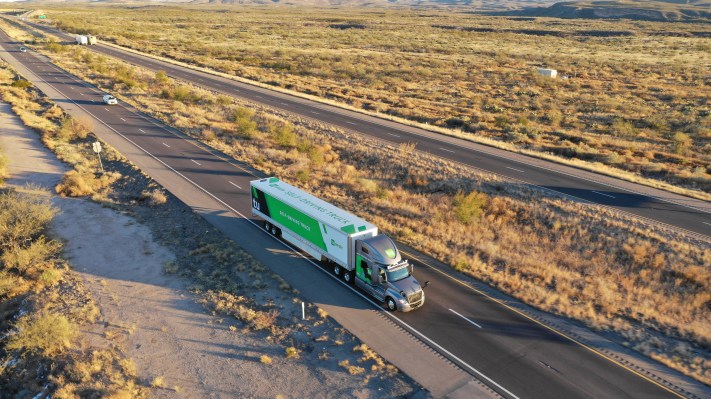
When TuSimple went public in 2021 it was flying high as the leading self-driving trucks developer in the United States. Now — after a string of internal controversies and the loss of a critical partnership with truck manufacturer Navistar — TuSimple is exiting the U.S. altogether.
The publicly traded company said in a regulatory filing Monday that it’s laying off the majority of its U.S. workforce and selling assets here as it exits the country for Asia. About 150 U.S. workers, or 75% of staff in the country, will be laid off. The remaining 50 workers will wind down TuSimple’s U.S. operations, including the sale of assets, and assist with the company’s shift to the Asia-Pacific region, according to the filing.
Once the restructuring is complete, TuSimple will have bout 700 full-time employees globally.
With TuSimple’s exit, few self-driving truck companies remain, including Aurora and Kodiak Robotics.
A year ago, TuSimple was exploring a different business scenario. The company, already struggling with executive shakeups and a delisting warning, lost its partnership with Navistar to co-develop autonomous trucks. About 25% of staff were laid off shortly after and TuSimple said it was in the process of selling off its Asia-focused business.
Six months later, TuSimple reversed course, doubling down on its operations in China and Japan while it began exploring strategic alternatives for its U.S. business, including a sale. The move was an about-face for TuSimple, a company that adamantly identified itself as an American company with operations abroad, despite its founding team and earliest backers coming from China.
Without a buyer, TuSimple is now forced to wind down its U.S. operations and sell off any assets.
TuSimple estimates it will incur one-time charges of about $7 million to $8 million in connection with the restructuring plan, with most of the cash used for severance payments, employee benefits and related costs. The majority of the restructuring charges will be recorded in the fourth quarter of 2023, the company said.
techcrunch.com




